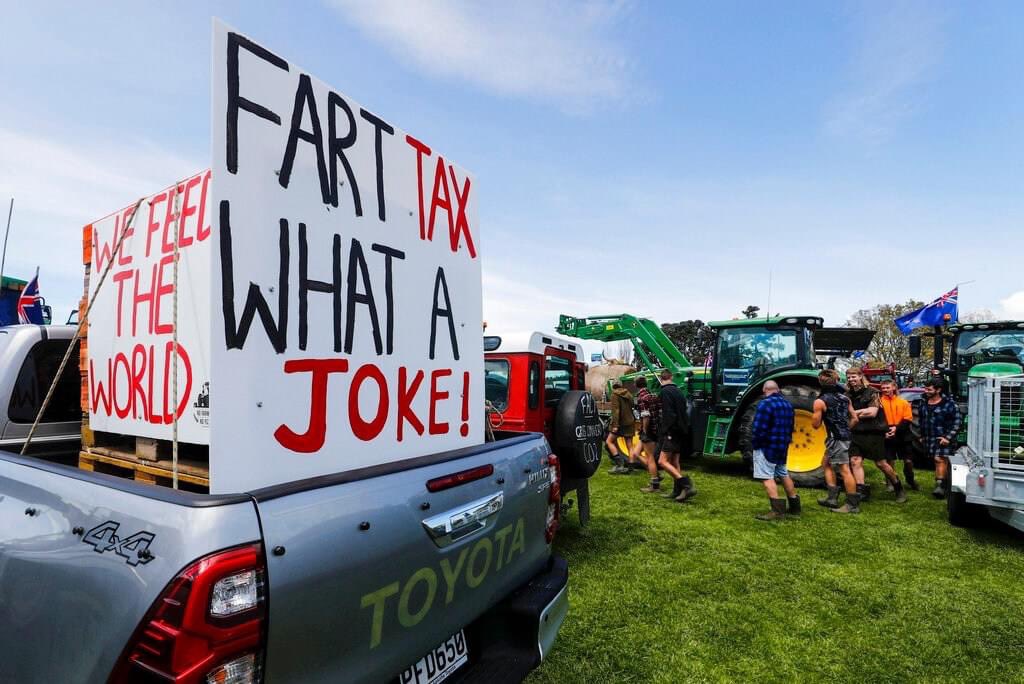
[elfsight_social_share_buttons id=”1″]
New Zealand farmers on Thursday gathered in city and town centers across the country, driving tractors and pickup trucks and carrying signs in protest against the government’s plan to tax … cow and sheep gas.
Yes, you read that correctly. Last week, the government confirmed plans to price long-lived agricultural gases and biogenic methane, which mainly comes from cow and sheep burps.
Swedish journalist Peter Imanuelsen called the proposal insane.
THIS IS INSANE
New Zealand now wants to put a climate tax on cow burps and farts.
This sounds like satire but is actually real. This will just increase food prices.
Retweet if you think the climate change fanatics are going too far🚨
— PeterSweden (@PeterSweden7) June 13, 2022
The proposed plan has been criticized by farming groups worried about how the proposal accounts for on-farm forestry and what can offset such emissions. They have also raised concerns about how emissions will be priced and how the program will be governed.
The plan is in the consultation phase.
Bryce McKenzie, the co-founder of Groundswell New Zealand, which organized the protest, told state-owned Radio New Zealand farmers were not necessarily campaigning for exemptions.
“Let’s work out how it’s going to be best for the farmers and the country, the problem being is that if you just charge willy nilly for something that you actually have no solution to, then it’s a tax,” he said.
New Zealand‘s Prime Minister Jacinda Ardern told reporters that they were looking for feedback from the community on the plan and her focus was on working constructively with food producers on the best outcome for them and the country.
Dairy giant Fonterra Co-Operative Group on Tuesday also released a letter to the market from the co-operative’s chairman Peter McBride that outlined Fonterra’s concerns about the plan.
“We have reservations about the Government’s current approach to the levy price-setting process, governance, and sequestration accounting,” he said. “We will be seeking changes on these issues.”
Copyright 2022 Thomson/Reuters
